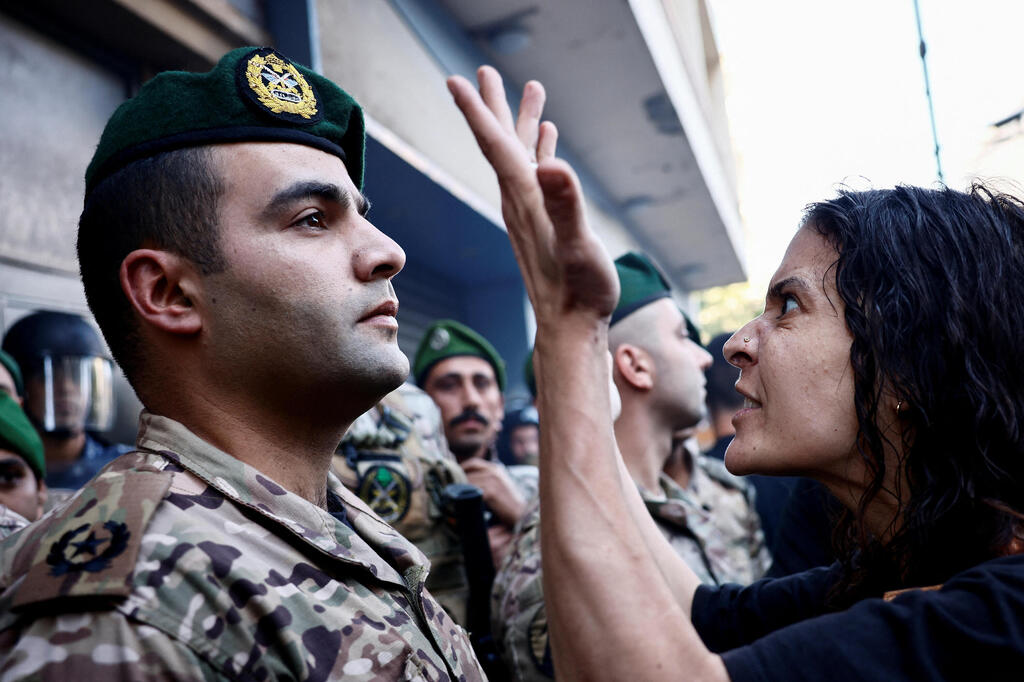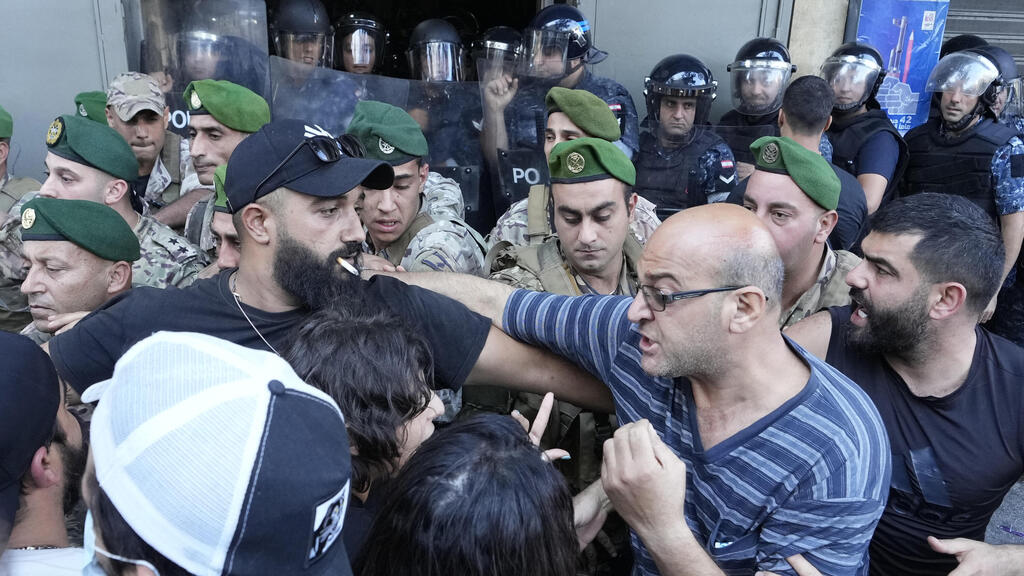Getting your Trinity Audio player ready...
The Lebanese government estimates that over 1.2 million people have been displaced due to the ongoing conflict between Israel and Hezbollah. The country, already struggling economically, was unprepared for the massive influx of refugees from various regions and for such an extended period of time. This inability to provide adequate living conditions to everyone has only heightened existing tensions on Lebanon's streets.
Tensions rise in Beirut due to displacement
On Monday, Lebanese security forces clashed with refugees on Al-Hamra Street in Beirut, who were asked to vacate the Hamra Star building. Protesters responded by blocking the road with burning tires, leading the Lebanese army to intervene to restore order.
The dispute over the building has been brewing for some time. Property owners have been trying to relocate displaced families, who have settled there, to alternative shelter centers, but the families are resisting eviction. The building's owners claimed days ago they "have been cooperating with displaced families who forcibly entered the building on September 27," and said the families were treated well.
Interactions between the displaced and the local communities hosting them across Lebanon are fraught with challenges. While some found refuge with friends or relatives in safer towns and villages during the war, many did not. Numerous refugees are now sleeping in tents on the streets of Beirut, as evidenced by recent videos and photos from the city.
On October 9, reports emerged of clashes between those displaced and security forces in Beirut's Ain Al Mraiseh, a coastal neighborhood in the city's north, when authorities attempted to dismantle the tents of those displaced.
Addressing the war and the displacement crisis, Prime Minister Najib Mikati told Al Arabiya network, "I hope that sectarian conflict does not arise as a consequence of the displacement."
Get the Ynetnews app on your smartphone:
Google Play: https://bit.ly/4eJ37pE
Apple App Store: https://bit.ly/3ZL7iNv







